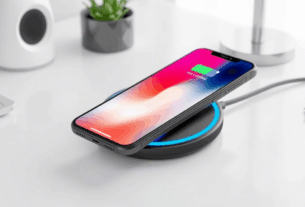iOS vs Android Performance: A Calm Comparison
When it comes to smartphone performance, the debate between iOS and Android is a long-standing one. Both operating systems have their strengths, and the “better” choice often depends on personal preferences and priorities. Rather than fueling the rivalry, let’s take a measured look at how iOS and Android handle performance, speed, and efficiency.

Hardware and Software Integration
One of iOS’s biggest advantages is Apple’s tight control over both hardware and software. Since iPhones are designed specifically for iOS, the optimization is seamless. This leads to smoother animations, faster app launches, and generally consistent performance over time.
Android, on the other hand, runs on a wide variety of devices with different processors, RAM configurations, and manufacturer skins (like Samsung’s One UI or Google’s Pixel UI). While high-end Android phones can match or even surpass iPhones in raw power, the experience can vary depending on the device.
App Performance and Optimization
iOS apps are often more polished because developers prioritize optimization for a limited number of devices. This means apps tend to run more efficiently, with fewer crashes or slowdowns.
Android apps, while improving, sometimes suffer from fragmentation. Developers must account for different screen sizes, hardware specs, and OS versions, which can lead to inconsistencies. However, flagship Android phones with top-tier processors (like the latest Snapdragon or Tensor chips) deliver excellent app performance, often rivaling iPhones.
Long-Term Performance and Updates
Apple is known for providing long-term software support, often updating iPhones for 5-6 years. This means even older iPhones remain smooth with the latest iOS versions.
Android updates depend on manufacturers, with Google’s Pixel phones getting the longest support (around 5-7 years for recent models). Other brands vary, with some offering only 2-3 years of major updates. That said, Android phones with strong hardware can still perform well beyond their update lifespan.
Battery Efficiency
iOS is optimized to maximize battery life, even on smaller batteries. Features like background app management and power efficiency help iPhones last longer with moderate use.
Android battery life varies by device. Some phones have massive batteries (5000mAh or more) and adaptive refresh rates, leading to impressive endurance. However, less optimized Android skins or bloated apps can drain batteries faster on some models.
Which One Feels Faster?
Subjectively, iOS often feels smoother due to its consistent animations and touch responsiveness. Android can feel just as fast (or faster in some tasks), especially on high-refresh-rate displays (120Hz or more), but the experience isn’t as uniform across devices.
Final Thoughts
There’s no definitive winner—just different strengths.
- Choose iOS if you prioritize long-term smoothness, consistent updates, and a tightly controlled ecosystem.
- Choose Android if you prefer hardware variety, customization, and high-end specs that can outperform iPhones in certain tasks.
At the end of the day, both platforms offer excellent performance—it just comes down to what matters most to you.
What’s your experience with iOS or Android performance? Share your thoughts in the comments.


